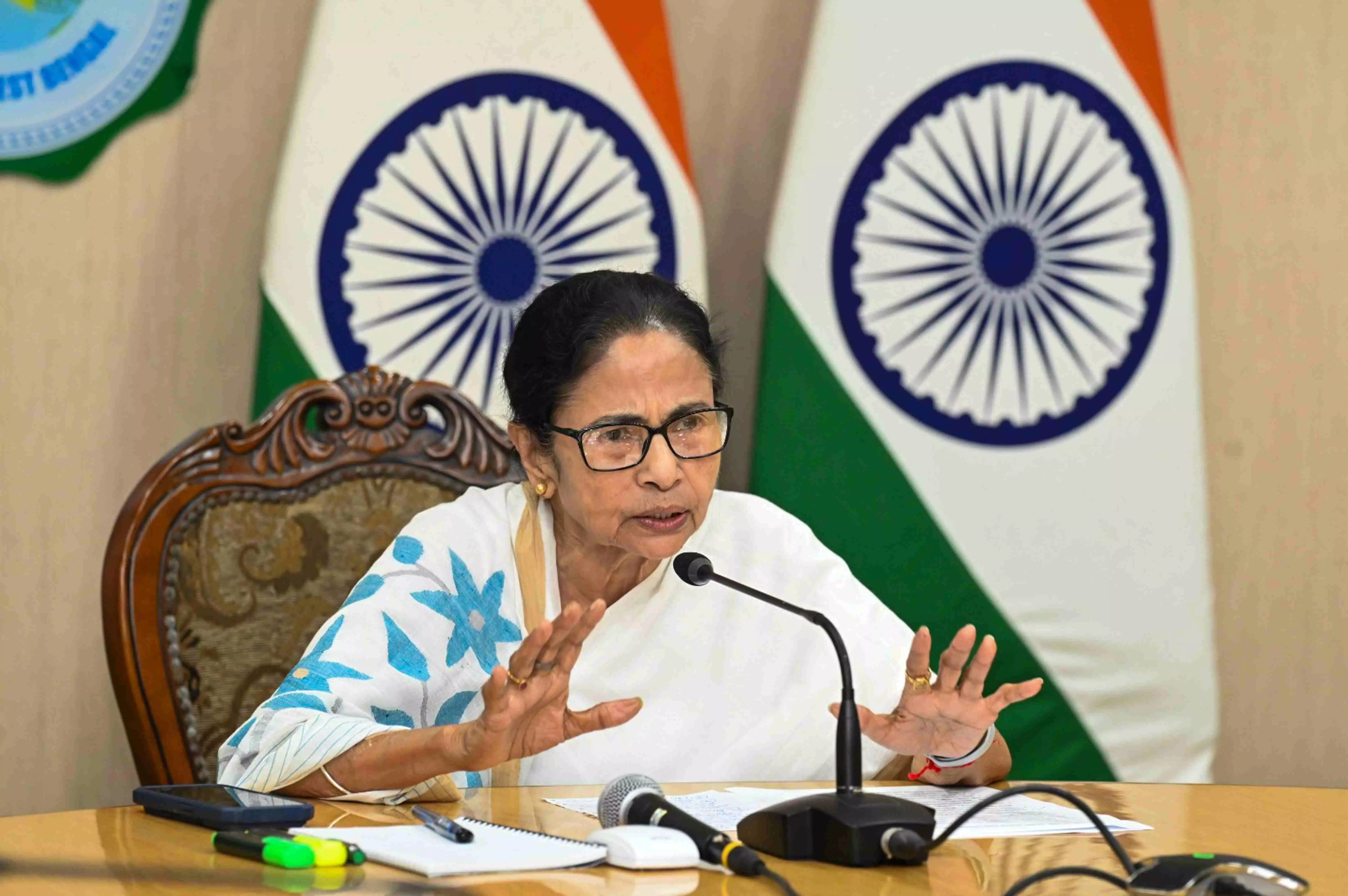
Bengal govt braces for confrontation with industry after it scraps 3-decade-old incentives
As investors will stay away after incentives have been revoked, the state faces more burden since it has to pay Rs 11,000 crore as DA dues to 10 lakh employees

As West Bengal government is bracing for confrontation with industries over scrapping of a three-decade old incentive scheme, its financial reputation might get a hit impacting its ability to attract investments.
The Trinamool Congress (TMC) government’s withdrawal of incentives provided to industries since 1993 did not go down well with companies. They have started exploring legal options following the policy change.
Contentious change
Authorities of at least three companies told The Federal on condition of anonymity that they will take legal recourse as they are likely to lose crores of rupees pending with the state government under Industrial Promotion Assistance (IPA) and WB State Support for Industries Scheme.
The Revocation of the West Bengal Incentive Schemes and Obligations in the Nature of Grants & Incentives Act, 2025 was cleared by the governor earlier this month. The most contentious aspect of the law is its retrospective nature due to which even pending incentives, refunds and tax benefits cannot be claimed.
It will also nullify the ongoing court cases and arbitration pertaining to incentives, pointed out Sudip Saha, a tax economist.
Also read: Mamata: 'Vicious' campaign made against Bengal govt in PM's rally
Moreover, it will have a severe impact on confidence of investors in government assurances, Saha said, adding that the trust deficit might discourage future investment.
Poor ranking
West Bengal ranked 13th out of 17 large states in the credit ranking agency CareEdge’s composite ranking for 2025. The assessment was made on the basis of seven key parameters viz., economic, fiscal, infrastructure, financial development, social, governance and environment.
The credit ranking reflects the fiscal health of a state. A poor ranking, as is the case with West Bengal, can diminish its chance of attracting investments.
West Bengal got a foreign direct investment of only Rs 2,534 crore in last fiscal, according to a recent report of the commerce ministry. For context, it was not in the list of top 10 states in terms of attracting FDI. The state ranked 11th. Even smaller states like Haryana and Kerela performed better.
Investors reluctant
The Trinamool Congress (TMC)’s policy of no-government role in land acquisition is one of the reasons often cited for the reluctance of big industries to venture into the state.
Also read: Bengal CM's financial assistance plan for sacked school staff illegal: Opposition
Any investor keen to set up an industrial unit in the state has to either purchase land on his own in market value through direct negotiation with landowners or opt for available plots from the state’s land banks mostly located in backward areas.
The direct purchase of land for a big industry requires an investor to negotiate with scores of landowners as the average size of land holding is just 0.77 hectares in the state.
After revocation of the incentives, the chances of industries heading to Bengal have diminished even further, claimed BJP leader Tarunjyoti Tiwari, who is also a lawyer.
The government sources said the incentives were withdrawn to free funds for welfare schemes and other non-plan liabilities of the state. The state government has earmarked a whopping Rs 1,58,879 crore for the welfare schemes in the budget.
More burden on exchequer
A recent court verdict has put further burden on the state exchequer.
The Supreme Court last month directed it to release 25 per cent of the outstanding Dearness Allowance (DA) arrears to its employees within six weeks. This means the state will have to cough up Rs 11,000 crore soon to pay DA dues to its 10 lakh employees.
Also read: Retail inflation dips to 6-year low of 2.82 pc in May
The state is heavily into borrowing to meet its fiscal obligations. Outstanding debts as a percentage of the gross state domestic product will be around 38 per cent by the end of this fiscal.
Larger public interest
The state government however claimed that the incentives were withdrawn in the “larger public interest”.
“It has been observed that the positive impact of these incentives has been largely confined to a limited number of beneficiaries and has had a minimal effect on the broader process of industrialisation,” the government said, while enacting the new law.

